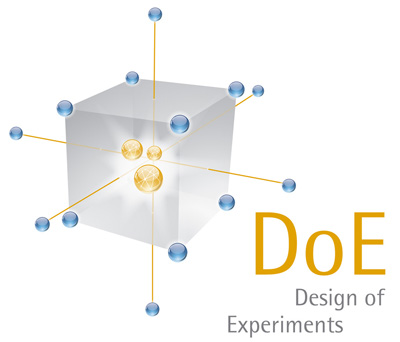Efficiency with Design of Experiments (DOE)
in Technical TrainingsAbout this training
Efficiency with Design of Experiments (DOE)
About This Training
The Efficiency with Design of Experiments (DOE) course is designed to help professionals understand and implement the principles of experimental design for improved efficiency and decision-making in any organization. In this course, you will learn how to set up experiments, analyze data, and draw conclusions that will enhance process optimization and product development. Mastering DOE will enable you to achieve high-quality results while reducing costs and time.
Why Choose Our DOE Course?
Our course provides a comprehensive understanding of DOE principles and methods. You will learn how to design, implement, and analyze experiments for various scenarios in manufacturing, service, and other industries.
After completing this training, you will have practical skills to optimize processes and make data-driven decisions that significantly improve your organization’s performance.
Course Highlights
In-Depth Modules: Each module focuses on key aspects of DOE, including experimental design types, analysis techniques, and real-world applications.
Expert Instructors: Learn from industry experts with years of experience in process optimization and experimental analysis.
Interactive Learning: Reinforce your learning through quizzes, case studies, and hands-on exercises.
Flexible Access: Access training materials at your convenience, allowing you to study at your own pace.
Who Should Enroll?
Process Engineers and Managers
Quality Assurance Professionals
Manufacturing and Production Staff
Research and Development Teams
Data Analysts and Statisticians
Anyone interested in applying experimental methods to improve processes and products
Why You Should Learn DOE?
Enhanced Efficiency: Learn how to design experiments that optimize processes and maximize efficiency.
Cost Reduction: Understand how to minimize waste and resources by running more effective experiments.
Data-Driven Decision Making: Utilize statistical methods to make informed, objective decisions based on experimental data.
Product and Process Improvement: Continuously refine your processes and products through well-structured experiments.
Career Advancement: Gain expertise in DOE and enhance your professional profile in quality management and research fields.
DOE Course Structure
Introduction to Design of Experiments: Understand the basic principles of DOE, the importance of controlled experiments, and its role in process improvement.
Types of Experimental Designs: Study various experimental design types, including full factorial, fractional factorial, and Taguchi methods, and learn how to choose the right design for your needs.
Statistical Analysis of Data: Learn to analyze the results of your experiments using statistical methods like ANOVA and regression analysis.
Real-World Case Studies: Explore case studies across different industries to see how DOE can be applied in real-world situations for process optimization and product development.
Interactive Assignments and Projects: Apply what you’ve learned to simulate real-life scenarios, getting feedback from instructors to help refine your skills.
Final Assessment and Certification: Demonstrate your knowledge by completing a final assessment. A passing score is required to earn your certificate of completion.
Testimonials
“Understanding DOE has completely transformed the way I approach process optimization. This course was informative and practical, and I was able to apply the methods right away.” — Suresh Kumar, Process Improvement Specialist ⭐⭐⭐⭐⭐
“The instructors made complex concepts easy to understand, and the hands-on projects helped me practice everything I learned. Highly recommended for anyone in manufacturing or R&D.” — Priya Singh, Research and Development Manager ⭐⭐⭐⭐⭐
Enroll Today
Join the professionals who have enhanced their skills in experimental design and efficiency. Sign up today and begin your journey toward mastering the Design of Experiments!
Certification Exam
Candidates will complete an online exam featuring multiple-choice questions, with a passing score of 60% required. A hard copy of your certificate can be requested for an additional fee of ₹100.
Comments (0)
Quiz & Certificates









